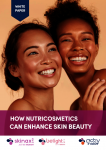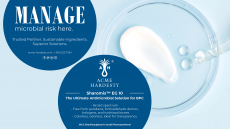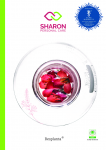Questions still remain over market potential in Africa
spread of harmful cosmetic products raises the issue of Africa's
suitability as an export market.
According to local news sources life-threatening perfumes and facial creams containing male hormones are widely available in the East African country. Health Minister Dr Aisha Kigoda said the dangerous products were being smuggled into the country by unscrupulous businessmen and include hormone rich creams that create unwanted facial hair, lead to the development of allergies and can even cause cancer. Politicians attacked the Tanzania Food and Drugs Authority (TDFA) for failing to stop the distribution of these harmful cosmetic goods. "TDFA is not conducting thorough inspections of retail outlets. The cosmetics are massively circulated, causing side effects both to the lives and health of the people, but nobody seems to care," said Rosemary Kirigini, a member of the country's leading political party. The TDFA was established in 2003 under the Tanzania Food, Drugs and Cosmetics Act and has banned 182 cosmetic products as well as a number of dangerous ingredients such as mercury, steroids and sexual hormones. The regulators are also responsible for the approval and registration of cosmetic products in Tanzania and are expected to order regular inspections of retail outlets. When CosmeticsDesign tried to contact the TDFA over the recent criticisms they refused to comment. Tanzania and South Africa are the only African countries to have any regulatory framework covering the cosmetics industry, leading industry experts to question whether the problem is widespread on the continent. Many large international cosmetic companies have yet to explore Africa as a consumer market and many people still use the medicine man as their source of cosmetics. Although sub-Saharan Africa recorded high levels of economic growth in 2005 and 2006, international cosmetics firms are still reluctant to exploit the developing consumer market on a large scale. The risks associated with operating in an environment where the rules of the game are either undefined or not enforced are key reasons for their hesitancy. Dr Annelie Struessmann, the author of a paper on cosmetic regulation in Africa, said poverty, corruption and cultural factors have all stood in the way of the development of effective legislation. In Europe, an EU-wide regulatory system has been in place since the 1976 directive on the manufacture and marketing of cosmetics. A tightly enforced list of permitted and banned ingredients ensures that dangerous products never reach the shelves. The use of sexual hormones in facial creams, for example, is strictly prohibited.






![Skinidea has developed a new skin care brand, MDP, specifically to target US beauty consumers. [Medipeel]](/var/wrbm_gb_food_pharma/storage/images/_aliases/wrbm_tiny/publications/cosmetics/cosmeticsdesign-asia.com/headlines/business-financial/skinidea-develops-new-brand-to-target-us-market-as-part-of-expansion-plans/17362677-1-eng-GB/Skinidea-develops-new-brand-to-target-US-market-as-part-of-expansion-plans.jpg)





